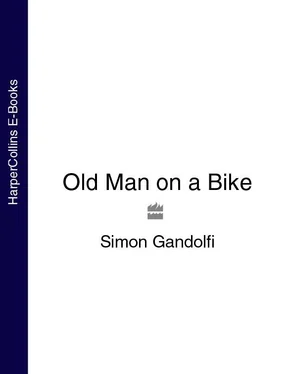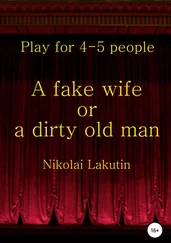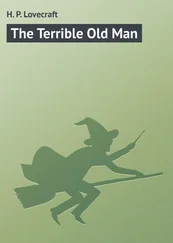‘But look at the soap,’ I say. ‘Even the servants are white. Everyone I see on television is white – except on the news programmes. Although the presenters are always white.’
The concierge says, ‘It’s true.’ And to the maid, ‘Yes, it’s true.’
They were content watching the soap. I have made them uncomfortable. The job of a writer is to provoke thought – particularly uncomfortable thought. I wish that I were a better writer. What is worthy in a good writer is merely arrogance in the mediocre.
Chapter 5
The Monk and Mister Big
An idyllic beach, Thursday 25 May
Be patient. This chapter concerns a small Mexican village on the Pacific coast, a community in which the villagers take turns collecting garbage, being police officer or whatever requires doing. The community is under threat.
I heard of the village from a delightful young Irish traveller in Oaxaca, Eoin Hennessy. Eoin was flying home from Mexico City after exploring much of South and Central America. Eoin was the first person with whom I had talked in English since boarding the bus in Dallas. He suffered my verbal diarrhoea patiently, learnt of my interest in students and told me of a Korean American teaching at a school in a village on the Pacific coast: surely a curious and unique combination? The village is 145 kilometres north. I should head south to Guatemala but the temptation to investigate is too strong.
What a morning! A heavy rain fell in the night and you can taste a sharp fresh cleanliness to the air. An excellent highway unwinds through hills speckled with the white blossom of frangipani trees and trees that resembles wild figs. There are sudden patches of deep-rose creeper and startling blue. Vultures and buzzards hang overhead on dawn patrol for whatever has been squashed by the night’s traffic. Between the hills, I catch glimpses of the sea and miles of deserted beach. I rested yesterday. My bum has un-numbed. This is biking at its best.
A short stretch of newly laid concrete track leads off the coastal highway. The concrete ends at the crest of a ridge. I ride cautiously downhill on powdery dirt to the village. I park at a home on the square opposite an obviously official building and enquire of a man seated in one of those bought-on-sale white plastic chairs whether the building is the school. He asks why and I relate my search for a Korean American teacher.
‘Sit a little,’ he invites and introduces himself as Eduardo. The Korean (no villager refers to him as ‘the American’, not even ‘the Korean American’) doesn’t teach at the school. He gives private lessons. He lives in a house nearer the beach. At this early hour he will be watching the surf through binoculars.
Eduardo will lead me to the Korean’s home. In a short while Eduardo will collect the village garbage in the black Ford pickup that he has driven home from El Norte. Collecting the garbage is the time for Eduardo to show me the house that the Korean occupies. Meanwhile I must give an account of myself and why I wish to meet with the Korean.
Children surround us, a small tribe, the elders perhaps listening while the young giggle and shove each other. Eduardo is in no hurry. I must adjust to the slow tempo of his investigation.
I recount my journey and that I am a writer, an Ingles.
‘Inglaterra ? Is that close to El Norte ?’
‘Not close,’ I say. ‘In Europe. In the north of Europe.’
Perhaps satisfied, Eduardo relates a little of his own life, of the three years in Taos where he worked as a roofer for a gringo, a good employer who insured his workers, even the ilegales – fortunate, as Eduardo injured two fingers while on a roof.
In turn, I speak of my father-in-law, a fine, dearly beloved Irishman. He came to England in search of work as a labourer and his arm was trapped in a cement mixer while he worked alone on the roof of a tall apartment building.
My father-in-law and two of his brothers came to England on the false promise of well-paid work. Eduardo paid a smuggler 1500 dollars to lead him across the frontier. Later Eduardo saved the same amount to have his wife brought across. A daughter was born in El Norte and has papers.
Eduardo intended returning to Taos in June. He is a good worker. His gringo employer keeps a job open for him. Now there are new laws in the north, and greater difficulties and dangers in crossing the frontier. Eduardo is unsure whether crossing is possible.
The economy of his family depends on his going. These are anxious times.
‘Do many villagers go to the north?’
‘Many,’ Eduardo says. ‘To Taos, alone, more than one hundred.’
‘Do they return?’
My question is stupid. Naturally people return. This is their village. Although now, those that are away will be afraid to return home. The new conditions will force them to stay in the north to be sure of sending money home. How could families survive without money? Here in the village there is no work.
Then, almost casually, Eduardo mentions the torneo.
In June an international surfing tournament will be held on the village beach. Outsiders are organisers of the tournament. The tournament will be shown on television and reported with photographs in magazines and newspapers. The village will be famous. Many people will visit.
‘More money will come,’ I suggest.
Eduardo agrees, although he seems uncertain, hesitant.
‘The value of property will rise.’
‘Yes,’ Eduardo says. ‘Yes, many people will wish to buy lots.’
I tell him of the early days in Ibiza, the fifties, and that all the young men were friends. We, the few foreigners, together with the Ibicencos, partied together. We went to the beach together, went fishing. Twenty years later my first wife, Cate, and I returned to Ibiza and dined at the Olive Tree in San Antonio. The owner was one of those young men.
‘How is Paco Tuels?’ we asked. ‘How is Juan Jesus? And Antonio of the Ferry?’
The restaurateur’s replies were non-committal. Later, when the rush had cleared, he sat at our table and we drank brandy together and he told us, sadly: ‘In the days you remember, we were all friends. Now we are business competitors.’
I follow Eduardo through the village and wait while he loads garbage from other families. Many of the homes are in that curious and very Mexican condition of waiting for more funds to be extended or finished or painted. It is a small village, at most a hundred houses, and easily swallowed – a small mouthful to a rich, powerful investor with the right political links. This was the story of Ibiza.
The road to the beach is gated. The village commune charges visitors an admission of ten pesos. Eduardo enquires for the Korean. The surf is good. He went to the beach an hour or more ago.
Eduardo stops my hunt for change. For me, entry to the beach is free. Thus I am placed under an obligation of friendship to the village. This seems to me to be quite deliberate. I am, of course, a writer, and possess a writer’s imagination.
The dirt track to the beach has been graded. A rich irrigated vegetable garden – huerto – of papaya and citrus lies below the track to the left. The huerto ends in a lagoon that fills at high tide and is flooded with fresh water when there is heavy rain. The track leads to a sand parking lot shaded by a few small trees. A concrete hut houses clean lavatories and showers – his and hers. A big palm-thatched hut, a palapa, shades a bar and kitchen and a score of standard white plastic tables and chairs. A few hammocks swing in the shade of an adjoining palapa. A steep hill hooks round the right end of a gently curving mile of perfect sand. The hill jabs a point of massive boulders into the sea. Waves break at the point. The surf is vertical and forms a perfect barrel again and again and again … and again.
Читать дальше





![Джон Скальци - Questions for a Soldier [Old Man's War 1.5]](/books/418139/dzhon-skalci-questions-for-a-soldier-old-man-s-wa-thumb.webp)






